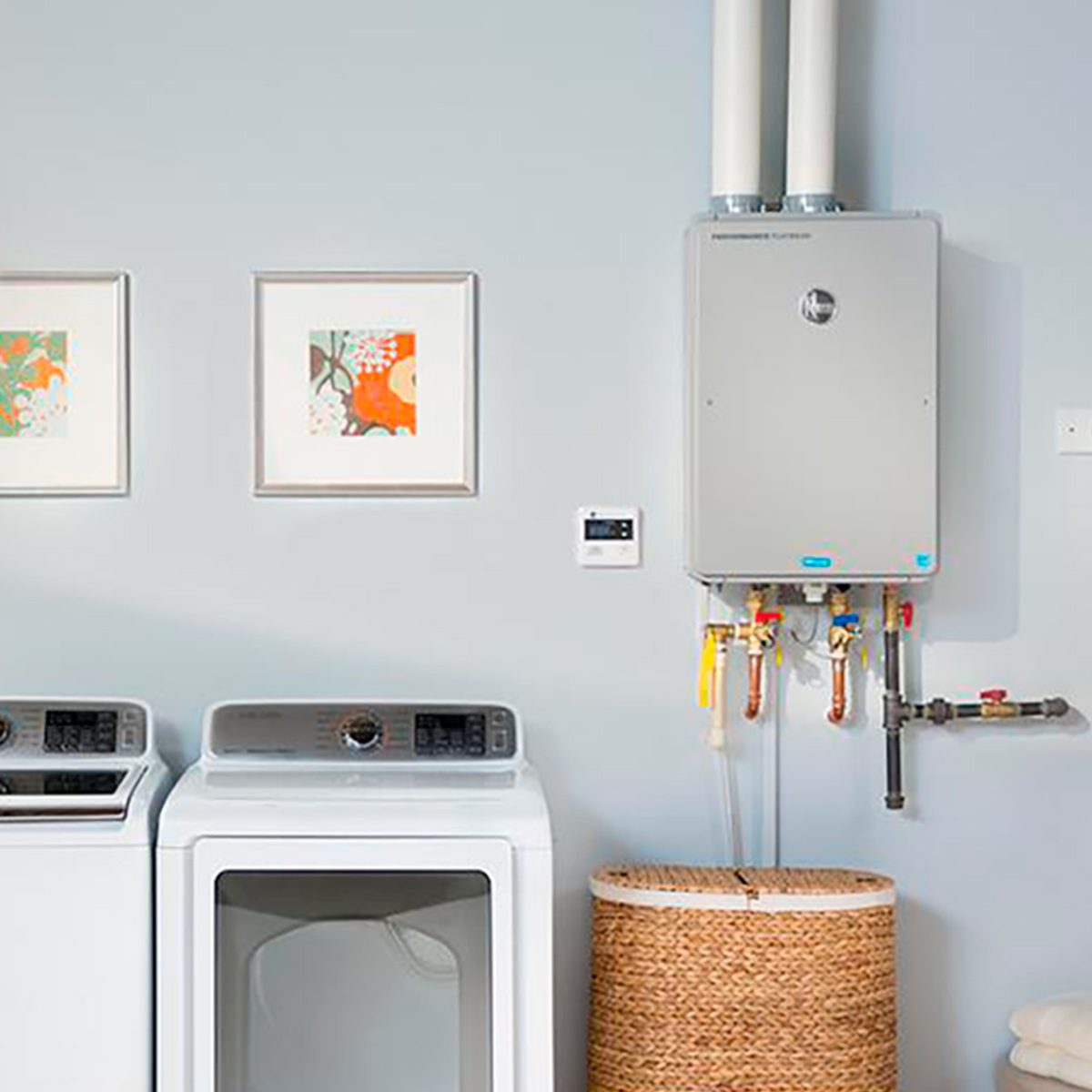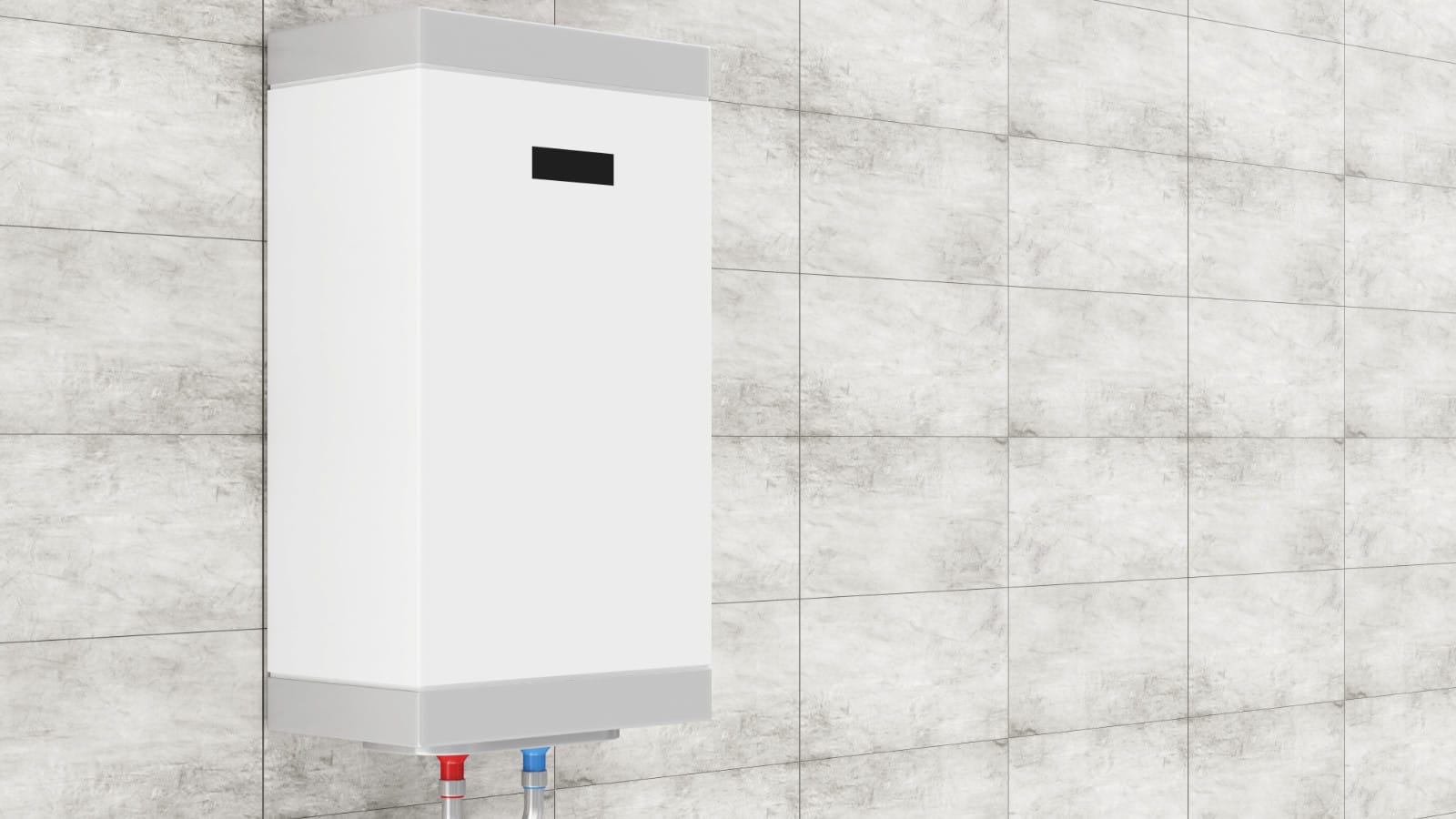A Guide To Gaining The Benefits Of Tankless Water Heaters
A Guide To Gaining The Benefits Of Tankless Water Heaters
Blog Article
On this page further down you can discover a lot of good quality resources about Six Benefits of a Tankless Hot Water Heater.

In a world where benefit and efficiency preponderate, it's no surprise that home owners are regularly on the lookout for smarter means to manage their home's power intake and convenience. One development that has continuously acquired popularity is the tankless water heater. Yet just what makes these systems stick out from the traditional tank-based versions the majority of us grew up with? Let's dive in and discover the advantages of tankless water heaters, helping you choose if it's time to make the button in your house.
Introduction
Photo this: you step into the shower after a long day, expecting a soothing waterfall of warm water, only to be welcomed by icy beads since the last person utilized all of it up. Audio familiar? Conventional hot water heater save a set quantity of hot water, indicating you're at the grace of that container's supply. Tankless systems, on the other hand, warmth water on demand. No more running out mid-shower, say goodbye to wrestling with schedules just to make certain warm water is available.
Recognizing Tankless Hot Water Heater
What Are Tankless Hot Water Heater?
Tankless water heaters, in some cases referred to as on-demand or instantaneous hot water heater, supply hot water just as it's required. Instead of keeping gallons of pre-heated water, these units kick right into activity the moment you activate the faucet. Water goes through a warm exchanger, heating up in real-time, meaning you obtain a nonstop flow of hot water without the demand for a huge container sitting idly by.
How Do They Differ from Traditional Systems?
Conventional heating units hold a reservoir of hot water, utilizing energy to keep that container at a constant temperature. Tankless devices get rid of the standing supply, reducing squandered energy and the bulky footprint of a big cylinder. Basically, you're updating from a "accumulation" frame of mind to a "made-to-order" approach.
Usual Sorts Of Tankless Units
Tankless hot water heater generally come in two varieties: gas and electrical. Gas versions tend to provide higher circulation rates, suitable for bigger houses, while electric versions commonly serve smaller homes and are generally less complicated to mount. Additionally, some systems are created for point-of-use (serving one component) while others can take care of the whole home's warm water demands.
Key Benefits of Tankless Hot Water Heater
Energy Performance and Expense Cost Savings
No more heating a giant tank's well worth of water and maintaining it toasty throughout the day. Tankless heating units lower standby power losses, which can decrease utility bills. While the initial cost could be higher, the lasting savings often warrant the financial investment.
3. Space-Saving Design
If your home is short on storage space, getting rid of the bulky container maximizes valuable room. Tankless systems are compact and can commonly be placed on wall surfaces, tucked away in edges, or set up in tight utility closets without having all to oneself the entire room.
4. Longer Lifespan
A well-maintained tankless hot water heater can outlast its tank-based relative. Standard tanks could last 10-15 years, while tankless versions can keep chugging along for 20 years or even more, making them a strong financial investment with time.
1. Unlimited Hot Water Supply
Ever had to arrange showers so everybody gets their fair share of hot water? With tankless, that comes to be a distant memory. As long as the heating unit's flow capability isn't surpassed, you can take back-to-back showers without developing into a popsicle.
5. Improved Water Top Quality
Keeping water in a tank can often lead to sediment build-up or a somewhat "off" taste. With tankless systems, fresh water is heated instantly, reducing the possibilities of debris buildup and possibly offering cleaner-tasting water.
Considerations Prior To Switching
Though the advantages are compelling, it's a good idea to think about a few elements before completely committing.
Evaluating Your Home's Water Usage Patterns
If your house simultaneously makes use of numerous fixtures with high hot water demand, ensure the unit's circulation price fulfills your requirements. Understanding your usage patterns helps you choose the right dimension and type of tankless heating system.
Maintenance and Treatment Tips
Tankless systems are reasonably low upkeep, yet they aren't set-it-and-forget-it appliances.
Routine Cleansing and Descaling
Hard water minerals can develop in the warmth exchanger, impacting effectiveness. Regular descaling (typically advised each year) keeps the system performing at peak performance.
Annual Expert Assessments
A yearly checkup from an expert makes sure small concerns are captured early. They'll assess the unit's performance, look for leaks, and help maintain optimum efficiency.
Initial Investment Costs
Tankless heaters generally come with a greater ahead of time price. In between the unit itself and potential installment adjustments, the initial price might offer you sticker shock. But bear in mind to view it as a lasting investment.
Installment Demands
Depending on your home's infrastructure, you might need additional electrical ability or gas line upgrades. Ensure you comprehend the installation needs and talk to a professional to avoid shocks.
Making Certain Proper Air Flow
For gas models, proper ventilation is important to securely expel exhaust gases. Ensure airing vent systems are tidy and properly set up to stop any kind of prospective safety dangers.
Contrasting Different Brands and Designs
Not all tankless hot water heater are created equal.
Investigating Trusted Suppliers
Look for respectable brands with a history of creating high quality units. A dependable manufacturer often supplies much better consumer support and longer warranties.
Setup: DIY or Specialist?
While some house owners relish dealing with projects themselves, tankless installment may not be the best time to burst out the tool kit.
Advantages and disadvantages of DIY Setup
A DIY mount might conserve money, yet it features risks. Inaccurate installment can bring about inefficiency or security worries. If you come in handy and have experience, it could be viable-- but proceed with caution.
Reading Reviews and User Comments
Individual evaluations and comments from neighbors or good friends that have actually gone tankless can supply useful insights. In some cases, real-life experiences can be much more informing than advertising brochures.
When to Call a Specialist Plumbing Technician
For a lot of, calling a pro makes certain whatever's done correctly. An expert plumbing professional understands regional codes, sizing needs, and venting criteria, decreasing the danger of mishaps.
Optimizing Efficiency
You've invested in a tankless unit-- now optimize its efficiency.
Ideal Temperature Level Setups
Most people establish their devices in between 120-140 F. Adjusting the temperature can improve comfort and savings. Experiment to find a sweet spot that doesn't waste power.
Pairing with Low-Flow Fixtures
Wish to stretch your unit's capacities? Take into consideration setting up low-flow showerheads and faucets. They decrease water usage, permitting your tankless system to provide a steady stream of warm water without straining.
Environmental Influence
Tankless water heaters align with greener living objectives.
Reduced Carbon Impact
By using less power and only home heating water as needed, tankless systems can decrease your home's carbon footprint, minimizing your environmental impact.
Conserving Natural Resources
Much less power consumption and less wasted hot water convert into fewer natural deposits being used, an ecological win-win.
Who Profits The Majority Of from Tankless Heating units?
The charm of tankless heating units is that they can match a selection of households.
Large Family Members vs. Single Occupants
Large families might love the endless hot water supply, while single passengers appreciate the energy cost savings from not warming an entire container for just someone's morning shower.
Home Owners with Limited Area
If your home is short on square video, losing the large container frees up space for various other essentials-- or perhaps just extra breathing space.
Eco-Conscious Customers
Going tankless aligns with eco-friendly values, ensuring you're not squandering power or sources.
Future Patterns in Tankless Hot Water Heater
The globe of home appliances is ever-evolving, and tankless water heaters are no exception.
Improvements in Innovation
R&D is regularly boosting warmth exchangers, making devices extra efficient and long lasting. Future versions might be even quieter, extra compact, and much better matched for differing environments.
Smart Home Integration
Think of readjusting your water heater's temperature through an app or getting maintenance notifies on your phone. As wise home technology advances, we'll see more connection and ease.
Final thought
Picking a tankless water heater is more than simply upgrading your home's hot water system; it's purchasing lasting comfort, energy performance, and a greener way of life. By considering your house's water usage, being mindful of setup requirements, and devoting to routine upkeep, you can take pleasure in a stable stream of warm water without the baggage of a bulky container. As innovation progresses, you can eagerly anticipate even smarter, a lot more reliable tankless remedies that not only make your life easier however likewise profit the world.
Why You Should Consider a Tankless Water Heater for Your Home
Energy Efficiency and Cost Savings
Tankless water heaters, also known as on-demand water heaters, heat water only when needed. This means they don't waste energy keeping a tank of water hot constantly. This efficiency translates into substantial cost savings on your monthly energy bills.
Endless Hot Water Supply
One of the significant advantages of tankless water heaters is their ability to provide a continuous supply of hot water. Traditional tank water heaters have a limited capacity and can run out of hot water, especially during peak usage times. In contrast, tankless water heaters can provide an endless stream of hot water, making them ideal for larger families or homes with high water usage.
Space-Saving Design
Tankless water heaters are compact and take up significantly less space compared to traditional tank heaters. They can be installed on walls, under cabinets, or even outside, freeing up valuable space in your home. This makes tankless water heaters a great option for smaller homes or properties with limited space for a traditional water heater.
Longer Lifespan and Lower Maintenance
Tankless water heaters typically have a longer lifespan compared to traditional tank heaters. They can last up to 20 years or more with proper maintenance. Additionally, tankless systems are designed with replaceable parts, which can extend their lifespan further and reduce long-term maintenance costs.
Environmentally Friendly
Reducing energy consumption not only saves you money but also benefits the environment. Tankless water heaters contribute to a smaller carbon footprint by using less energy to heat water. Their energy efficiency and ability to minimize standby heat loss make them an eco-friendly choice for environmentally conscious homeowners.
Customized Temperature Control
Tankless water heaters offer precise temperature control, allowing you to set the desired temperature to meet your specific needs. This level of customization ensures you always have water at the perfect temperature for your comfort and usage requirements.
https://beantownservices.com/blog/consider-tankless-water-heater-for-your-home

We are very eager about Pros and Cons of Tankless Water Heater and I hope you liked the entire blog post. Don't hesitate to take the time to distribute this page if you enjoyed reading it. Thanks a lot for your time spent reading it.
Book Your Service Report this page